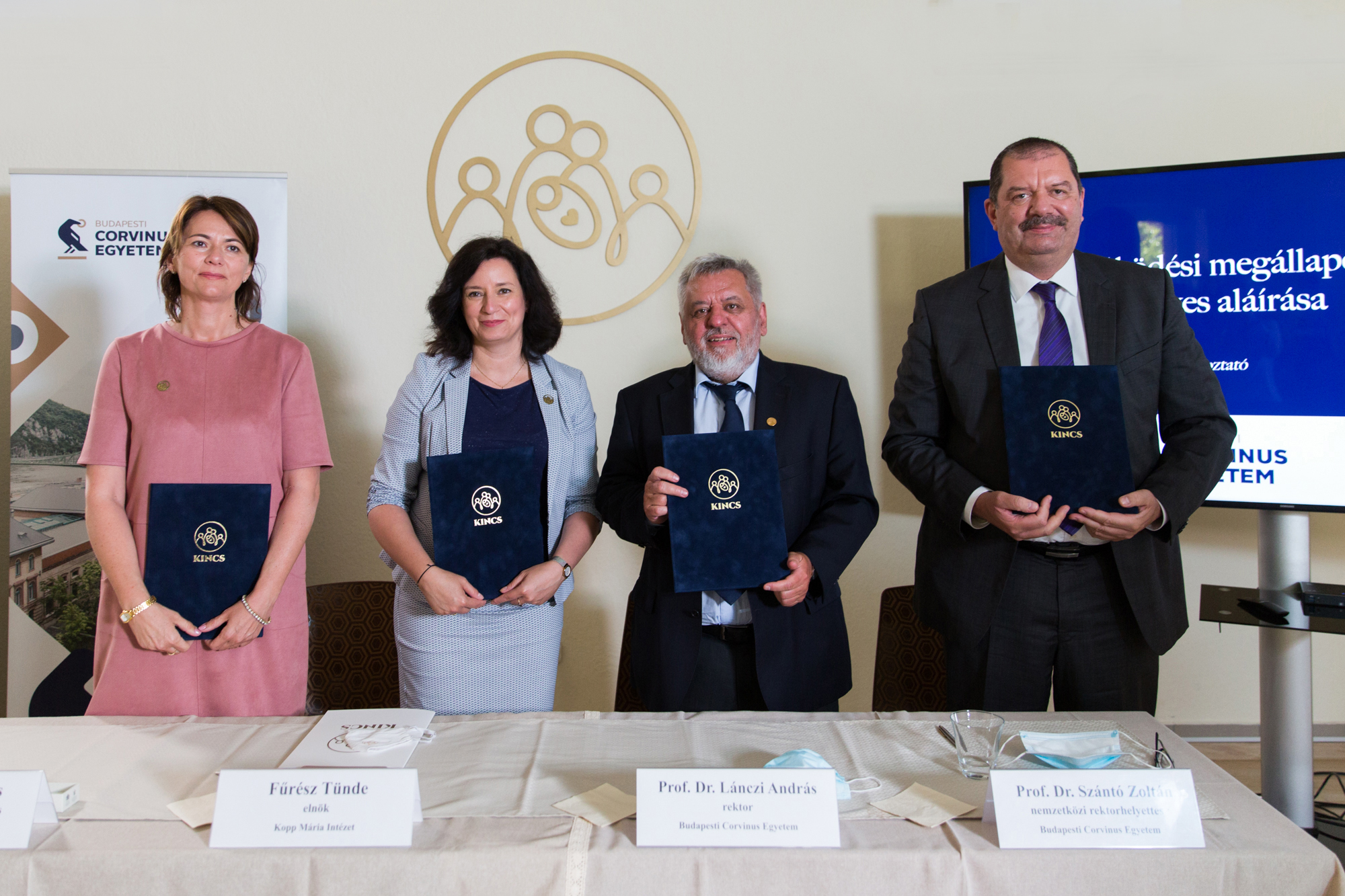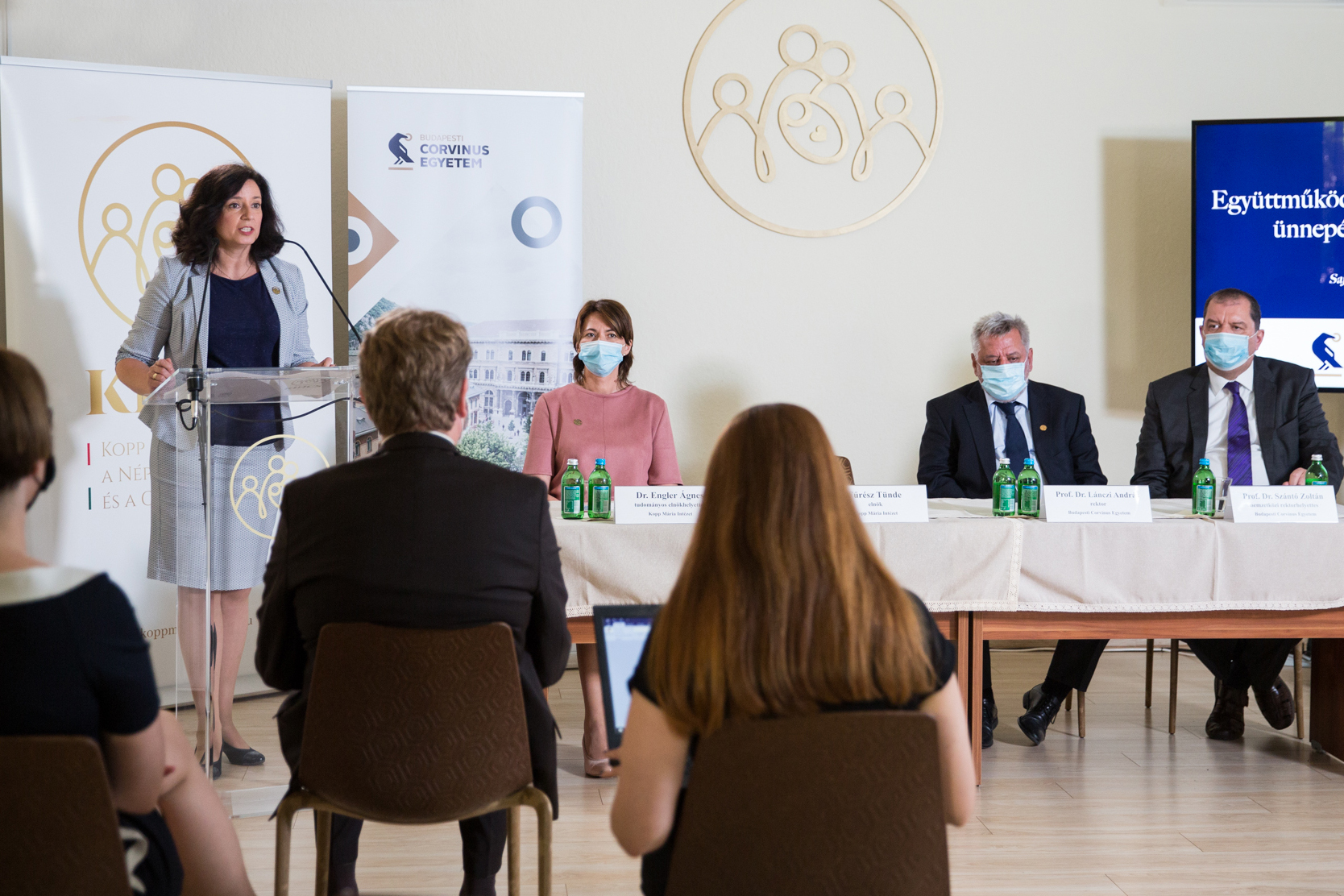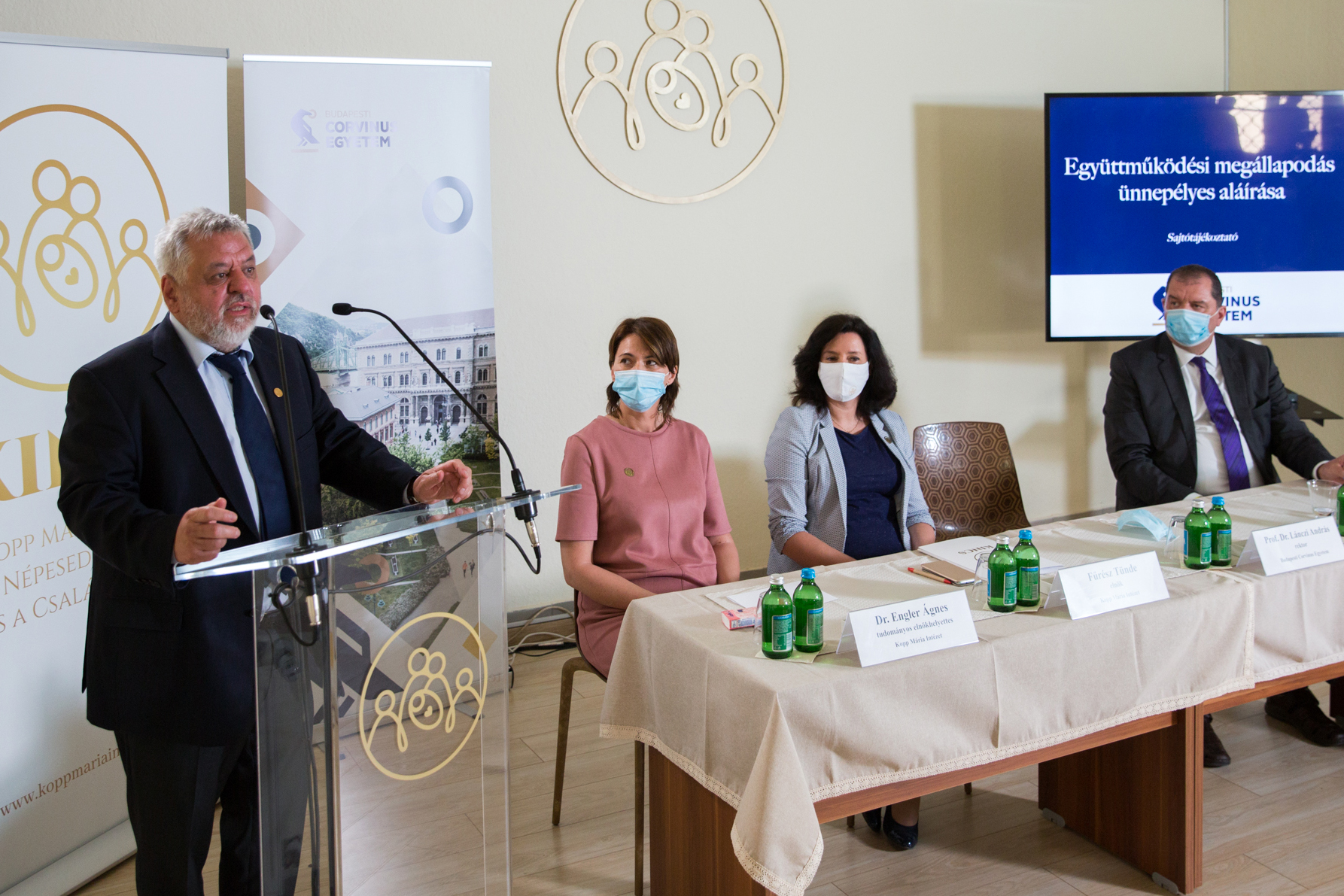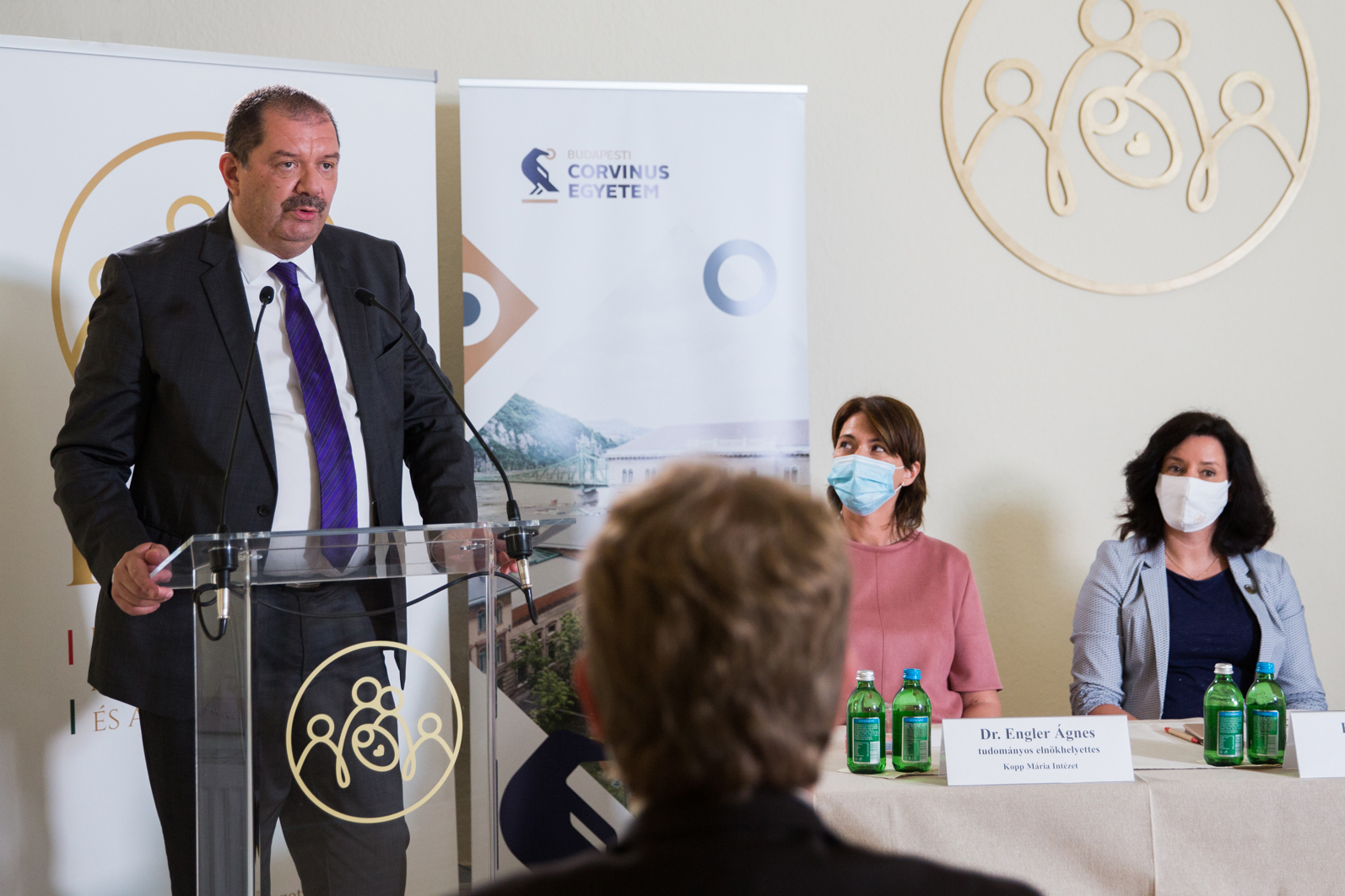Cooperation Agreement Signed between Corvinus and Mária Kopp Institute
Family policy research at universities and other scientific institutions has a key role to play in restarting the Hungarian economy, as they provide support and help for government decisions. In her message for the signing in Budapest on Tuesday of the Cooperation Agreement between Mária Kopp Institute and Corvinus University of Budapest, the Minister without Portfolio for Families stated that it is difficult to combat the effects of the epidemic without intellectual renewal.

In her message read out at the event, Katalin Novák drew attention also to the importance of cooperation between people, families and small and large communities as, without cooperation, it would not have been possible to survive the period of the epidemic, and cooperation is much needed also when restarting life.
According to the Minister, science and research provide new inspiration for assessing how to view the period of the coronavirus epidemic that represents a burden for families.
Katalin Novák, who is also the leader of the Operational Group responsible for the restarting of community life, said: the government’s goal is that everyone who has been put in a difficult position by the epidemic be able to recover; and who has lost their job or community be able to get them back or get new opportunities. She added that the targeted and effective family policy of the last 11 years provides dynamic support for restarting the economy.

Praising the cooperation between the Mária Kopp Institute for Demography and Families (Kincs) and the Corvinus University of Budapest, she said she was confident that the cooperation would provide plenty of intellectual ammunition to make Hungarian family policy even more successful and better positioned to serve families even more effectively.
Tünde Fűrész, President of Kincs, spoke about the fact that the Institute she is head of has from the very beginning considered its mission to connect the world of science as well as political decision-making and family policy as much as possible, and to act as a bridge between the two. She added that they have experienced that the family science approach has been increasingly present in the world of universities, and that Kincs has already concluded cooperation agreements with other universities.
She also referred to the fact that the master’s programme “Economics of Family Policy and Public Policies for Human Development” has been launched at Corvinus; as she said, such study programme has not yet existed in Hungary and she considers it very innovative.
Explaining the details of the agreement, she said that Kincs has announced a practical programme for Corvinus students and that the two institutions will work together on a number of research projects and programmes.

Speaking about the importance of the institution, András Lánczi, Rector of Corvinus University of Budapest, said that it has played a dominant role in Hungarian public life in recent decades and still plays a role in educating future generations of the elite.
He said it was important for the University to get as close as possible to the social needs and problems which “a University has a duty to address”.
He also talked about the fact that Corvinus has for many years been researching family businesses under an independent project with German help. He noted that a significant proportion of German companies are family businesses and that they form the basis of the German economy.

Oszkár Zoltán Szántó, Corvinus’ Vice-Rector for International Relations, said that it is not enough to publish scientific results, their social impact is really visible only when they reach the table of policy makers, who rely on them in shaping, for instance, family policy.
(Source: MTI)